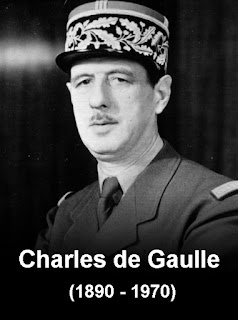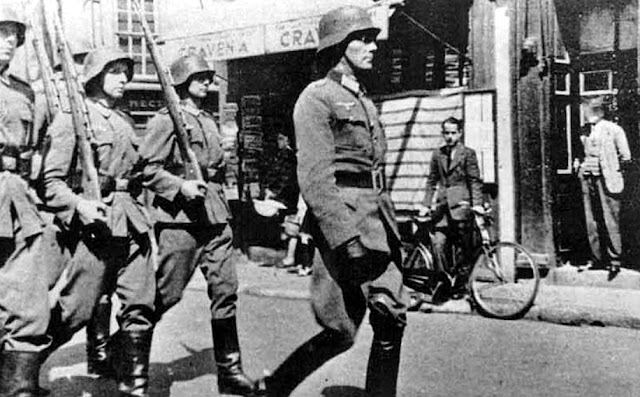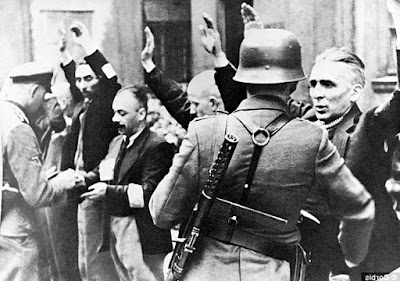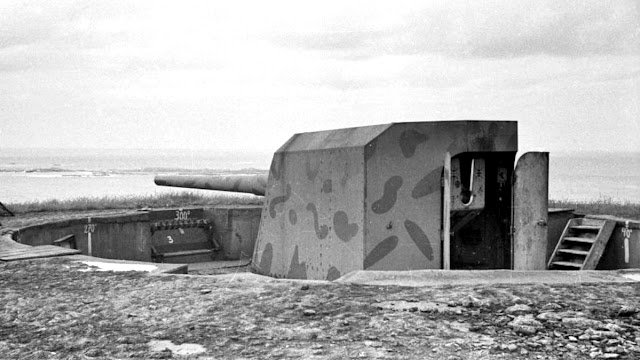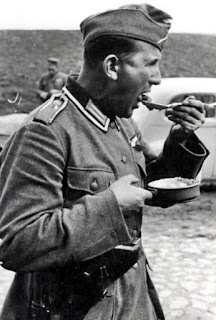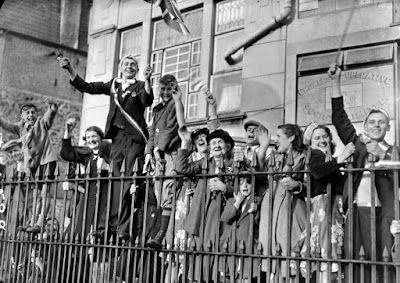Thursday, April 6, 2023
Channel Islands during the Second World War
The Channel Islands were occupied by Nazi German forces for most of the Second World War, from 30 June 1940 until their peaceful liberation on 9 May 1945. The Bailiwick of Jersey and Bailiwick of Guernsey are two British Crown dependencies in the English Channel, near the coast of Normandy. The Channel Islands were the only part of the British Isles to be occupied by the Wehrmacht during the war.
Between 3 September 1939, when the United Kingdom declared war against Germany, and 9 May 1940, little changed in the Channel Islands. Conscription did not exist, but a number of people travelled to Britain to join up as volunteers. The horticulture and tourist trades continued as normal. The British government relaxed restrictions on travel between the UK and the Channel Islands in March 1940, enabling tourists from the UK to take morale-boosting holidays in traditional island resorts. On 10 May 1940 Germany attacked the Netherlands, Belgium and Luxembourg by air and land and the war stepped closer.
On 15 June, after the Allied defeat in France, the British government decided that the Channel Islands were of no strategic importance and would not be defended, but did not give Germany this information. The Channel Islands served no purpose to the Germans other than the propaganda value of having occupied British territory. The Channel Islands had been demilitarised and declared an open town.
On 17 June 1940, a plane arrived in Jersey from Bordeaux evacuating Brigade General Charles de Gaulle from France. The plane flew then to Heston, outside London where next day the general made his historic appeal of 18 June to the French people via the BBC. The last troops left the islands on 20 June. Time was limited for anyone to evacuate, even so 25,000 people went to England, roughly 17,000 from Guernsey, 6,600 from Jersey and 2,000 from Alderney in the ten days before the German troops landed at the end of June 1940.
The Germans did not realise that the islands had been demilitarised because news of the demilitarisation had been suppressed until 30 June 1940, and they approached them with caution. Reconnaissance flights were inconclusive. On 28 June 1940, they sent a squadron of bombers over the islands and bombed the harbours of Guernsey and Jersey. In total, 44 islanders were killed in the raids. The BBC broadcast a belated message that the islands had been declared open towns and later in the day reported the German bombing of the islands.
While the Wehrmacht was preparing operation Green Arrows, a planned invasion of the islands with assault troops comprising two battalions, a reconnaissance pilot, Hauptmann Liebe-Pieteritz, made a test landing at Guernsey's deserted airfield on 30 June to determine the level of defence. He reported his brief landing to Luftflotte 3 which came to the decision that the islands were not defended. A platoon of Luftwaffe airmen was flown that evening to Guernsey by Junkers transport planes. The senior German officer, Major Albrecht Lanz, announced through an interpreter that Guernsey was now under German occupation. In this way the Luftwaffe pre-empted the Wehrmacht's invasion plans. Jersey surrendered on 1 July. Alderney, where only a handful of islanders remained, was occupied on 2 July and a small detachment travelled from Guernsey to Sark, which surrendered on 4 July.
The German forces quickly consolidated their positions. They brought in infantry, established communications and anti-aircraft defences, established an air service with occupied mainland France, and rounded up British servicemen on leave.
The German occupation of 1940 - 1945 was harsh. Over 2,000 Islanders were deported by the Germans, and some Jews were sent to concentration camps. During the German occupation of the Channel Islands, there was limited resistance. From a wartime population of 66,000 in the Channel Islands a total of around 4000 islanders were sentenced for breaking laws, around 2600 in Jersey and 1400 in Guernsey, although many of these were for ordinary criminal acts rather than resistance. 570 prisoners were sent to continental prisons and camps, and at least 22 Jerseymen and 9 Guernseymen did not return.
Resistance involved passive resistance, acts of minor sabotage, sheltering and aiding escaped slave workers, and publishing underground newspapers containing news from BBC radio. There was no armed resistance movement in the Channel Islands. Much of the population of military age had already joined the British or French armed forces.
As part of the Atlantic Wall, between 1940 and 1945 the occupying German forces and the Organisation Todt constructed fortifications, roads and other facilities in the Channel Islands. Much of work was carried out by imported labour, including thousands from the Soviet Union, and under the supervision of the German forces. The Germans transported over 16,000 slave workers to the Channel Islands to build fortifications.
The Channel Islands were amongst the most heavily fortified parts of the Atlantic Wall, particularly Alderney which is the closest to France. On 20 October 1941 Hitler signed a directive, against the advice of Commander-in-Chief von Witzleben, to turn the Channel Islands into an impregnable fortress. In the course of 1942, one
twelfth of the resources funnelled into the whole Atlantic Wall was dedicated to the fortification of the Channel Islands. Hitler had decreed that 10% of the steel and concrete used in the Atlantic Wall go to the Channel Islands. It is often said the Channel Islands were better defended than the Normandy beaches, given the large number of tunnels and bunkers around the islands.
During June 1944, the Allied Forces launched the D-Day landings and the liberation of Normandy. They decided to bypass the Channel Islands due to their heavy fortifications. As a result, German supply lines for food and other supplies through France were completely severed. The islanders' food supplies were already dwindling, and this made matters considerably worse. The islanders and German forces alike were on the point of starvation.
In September 1944 a ship sailed from France to Guernsey under a white flag. The American on board asked the Germans if they were aware of their hopeless position. The Germans refused to discuss surrender terms and the American sailed away.
It took months of protracted negotiations before the International Committee of the Red Cross ship SS Vega was permitted to bring relief to the starving islanders in December 1944, carrying Red Cross parcels, salt and soap, as well as medical and surgical supplies.
On the night of 8 March 1945 – 9 March 1945 a German raiding force from the Channel Islands landed in France at Granville and brought back supplies to their base, while taking a few American prisoners and killing others.
The Channel Islands were liberated after the German surrender. On 8 May 1945 at 10:00 the islanders were informed by the German authorities that the war was over. The following morning, 9 May 1945, HMS Bulldog arrived in St Peter Port, Guernsey and the German forces surrendered unconditionally aboard the vessel at dawn. British forces landed in St Peter Port shortly afterwards, greeted by crowds of joyous but malnourished islanders singing.
Sark was liberated on 10 May 1945, and the German troops in Alderney surrendered on 16 May 1945. The German prisoners of war were removed from Alderney by 20 May 1945, and its population started to return in December 1945, after clearing up had been carried out by German troops under British military supervision.


